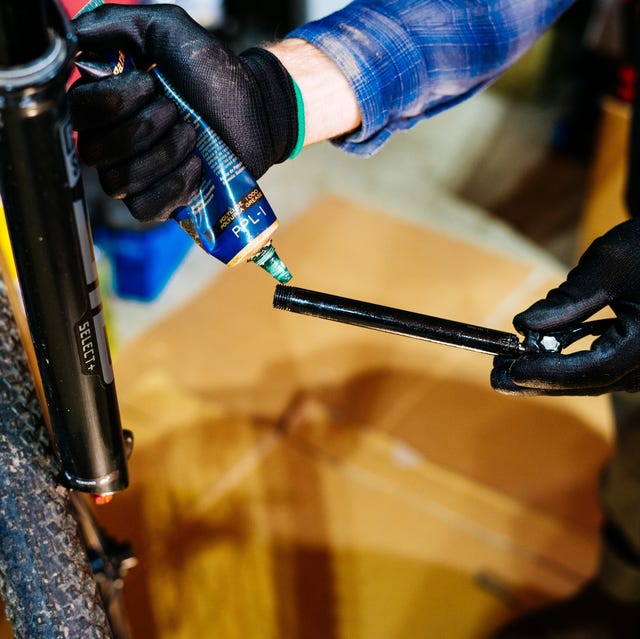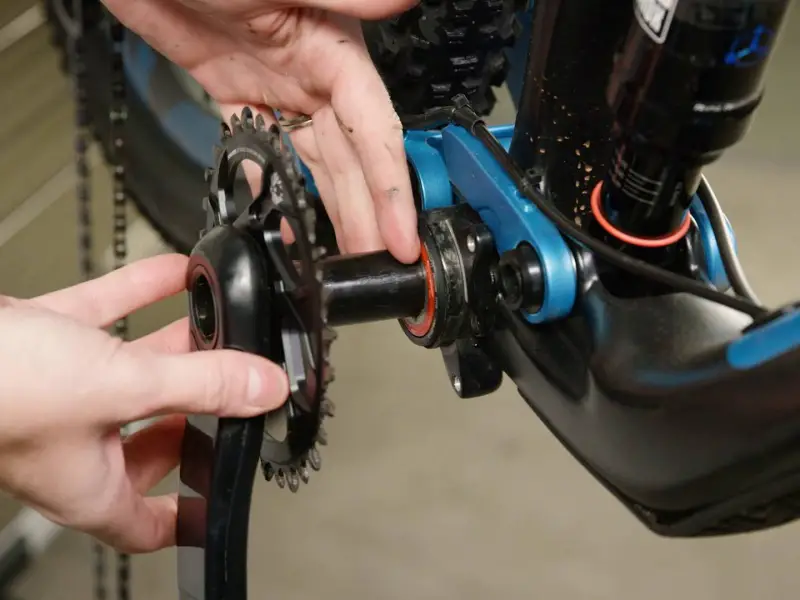When pressing the brake pedal, a noise can indicate a problem with the braking system. It is important to address this issue promptly to ensure safety and prevent further damage to the vehicle.
The noise might be a result of worn-out brake pads, loose brake components, or a buildup of debris. Additionally, rust or corrosion on the brake rotors could also cause the noise. Professional inspection and maintenance are essential to diagnose and resolve the issue, ensuring the safe and efficient operation of the vehicle’s braking system.
Ignoring brake noises can lead to more extensive and costly repairs in the future. Therefore, it is recommended to seek the expertise of a qualified mechanic to address any concerns with brake pedal noises promptly.

Credit: www.bicycling.com
Identifying The Noise
When it comes to identifying the source of a noise when pressing the brake pedal, it’s essential to pinpoint the specific sound and its characteristics. By recognizing and understanding the common brake noises and the associated symptoms, drivers can effectively diagnose potential issues and address them promptly.
Common Brake Noises
Brake systems can produce various noises, each indicating a different potential problem. By being familiar with these common brake noises, you can easily narrow down the possible causes:
- Squeaking or squealing sound
- Grinding or growling noise
- Clicking or clunking sound
- Scraping or rubbing noise
Brake Noise Symptoms
Recognizing brake noise symptoms is crucial for detecting underlying issues in the braking system. Some common symptoms to be aware of include:
- Reduced brake effectiveness
- Vibrations or pulsations when braking
- Unusual pedal resistance
- Uneven braking
Credit: www.quora.com
Causes Of Brake Noise
When it comes to the safety of your vehicle, brake noise is one issue that cannot be ignored. Understanding the causes of brake noise is essential to ensuring the proper function of your brakes. Identifying the source of the noise can help prevent potential hazards and save on repair costs in the long run.
Worn Brake Pads
If you notice a squealing or screeching sound when pressing the brake pedal, it is likely due to worn brake pads. Worn brake pads result in metal-to-metal contact, causing friction and noise. Regular inspection and replacement of worn brake pads can help eliminate this issue.
Brake Rotor Issues
Another common cause of brake noise is brake rotor issues. Brake rotor issues such as warping, grooves, or uneven wear can lead to grinding or vibration when applying the brakes. Proper maintenance and resurfacing of the brake rotors can mitigate these problems.
Loose Brake Calipers
If you notice a rattling or clicking sound when braking, it may be attributed to loose brake calipers. Loose brake calipers can result in uneven pressure on the brake pads, leading to noise and potential braking inefficiencies. Proper tightening and alignment of the brake calipers can address this issue.
Step-by-step Guide
Is your brake pedal making strange noises whenever you press it? This can be a sign of a potential issue with your car’s braking system. It’s important to address this problem as soon as possible to ensure your safety on the road. In this step-by-step guide, we’ll walk you through the process of troubleshooting and repairing the noise when pressing the brake pedal. Follow these steps below:
Lift The Vehicle
In order to inspect and fix the noise when pressing the brake pedal, you’ll need to elevate your vehicle. Use a car jack or ramps to lift your vehicle, ensuring it is secured in place before proceeding further. Safety is our priority!
Inspect The Brakes
Once your vehicle is lifted, it’s time to inspect the brakes. Carefully remove the tires, and visually examine the brake pads for any signs of wear or damage. Pay close attention to any loose or broken parts that may be causing the noise. Additionally, check the brake lines for any leaks or excessive corrosion.
Replace Brake Pads
If you notice worn-out or damaged brake pads during the inspection, it’s crucial to replace them. Brake pads are a vital component of your braking system, and worn pads can lead to poor performance and noisy braking. Follow the manufacturer’s instructions to install new brake pads, ensuring they are properly aligned and secure. Don’t forget to apply a high-temperature brake grease to reduce noise and friction.
Check And Resurface Rotors
The condition of your rotors can also contribute to brake pedal noise. Inspect the rotors for any signs of damage, such as grooves or warping. If the surface appears uneven or worn, it’s recommended to have them resurfaced. Resurfacing will ensure a smooth and even contact surface for the brake pads, minimizing noise and vibrations.
Tighten Brake Calipers
The brake calipers play a critical role in holding the brake pads against the rotors. Loose calipers can lead to abnormal noises when braking. Inspect each caliper for any signs of looseness or misalignment. Using a suitable wrench, tighten the caliper bolts to the manufacturer’s recommended torque specifications. This step will ensure a proper and secure fit, eliminating any potential noise caused by loose calipers.
By following this step-by-step guide, you can address the noise when pressing the brake pedal and restore the smooth and quiet operation of your vehicle’s braking system. However, if you’re not confident in performing these steps yourself, it’s always best to consult a professional mechanic to ensure the problem is resolved correctly. Remember, maintaining your brakes in good condition is crucial for your safety on the road!
Preventive Maintenance
Preventive maintenance is crucial for ensuring the longevity and safety of your brake system. By taking proactive measures, you can identify and address potential issues before they become major problems. Regular brake inspections and using high-quality brake components are two essential aspects of preventive maintenance.”
Regular Brake Inspections
Regular brake inspections are key to maintaining the effectiveness and reliability of your braking system. By having your brakes checked regularly, you can detect any signs of wear and tear or potential issues. A professional inspection can identify problems such as worn brake pads, leaking brake fluid, or damaged brake lines.
During a brake inspection, a qualified technician will thoroughly examine all components of your braking system, including the rotors, calipers, brake pads, and brake lines. They will look for any signs of damage, excessive wear, or leaks. By catching potential problems early on, you can avoid more expensive repairs in the future and ensure your brakes are always functioning optimally.
Using High-quality Brake Components
Another crucial aspect of preventive maintenance is using high-quality brake components. When it comes to brakes, it’s important to never compromise on quality. Investing in top-notch brake pads, rotors, and other components is essential for optimal performance and safety.
High-quality brake components are designed to withstand the demands of your vehicle and provide superior stopping power. They are built to last, ensuring that you don’t have to replace them frequently. Additionally, high-quality brake components reduce noise and vibration, enhancing your driving experience.
When choosing brake components, look for reputable brands known for their reliability and durability. Quality components may cost a bit more upfront, but they will save you money in the long run by lasting longer and reducing the risk of brake failures.
In conclusion, preventive maintenance is critical for the proper functioning of your braking system. Regular brake inspections and the use of high-quality brake components ensure optimal performance, safety, and longevity. By taking a proactive approach, you can minimize the risk of noise when pressing the brake pedal and address any potential issues before they become more significant problems.

Credit: www.amazon.com
Frequently Asked Questions Of Noise When Pressing Brake Pedal
Why Is My Brake Pedal Making Noise?
The noise you hear when pressing the brake pedal may be caused by worn brake pads, a loose brake caliper, or a problem with the brake hardware. It is important to have your brakes inspected by a professional to determine the exact cause of the noise and ensure your vehicle is safe to drive.
Is It Normal For Brake Pedal To Make Noise?
While some minor noise can be normal, such as a slight squeaking when you first apply the brakes, loud or unusual noises when pressing the brake pedal are not normal. These noises can indicate a problem with your brakes that should be addressed by a qualified mechanic.
How Can I Fix The Noise When I Press The Brake Pedal?
To fix the noise, you can start by replacing the worn brake pads, as they can cause noise when they become too thin. If the noise persists, it is recommended to have a mechanic inspect your brakes for any other issues that may be causing the noise, such as loose or damaged brake components.
Conclusion
To sum up, experiencing noise when pressing the brake pedal is a common issue that should not be ignored. It can indicate potential problems with the braking system, such as worn brake pads, loose components, or fluid leaks. Addressing these issues promptly is crucial for your safety on the road.
If you notice any unusual sounds or sensations while braking, it’s important to have your vehicle inspected by a professional mechanic to identify and resolve the underlying cause. Proper brake maintenance is key to ensuring optimal braking performance and preventing accidents.

